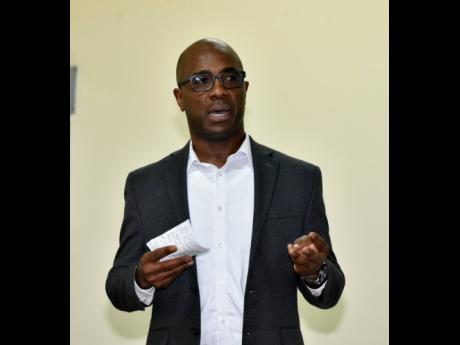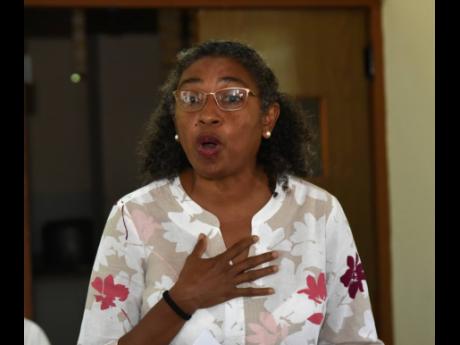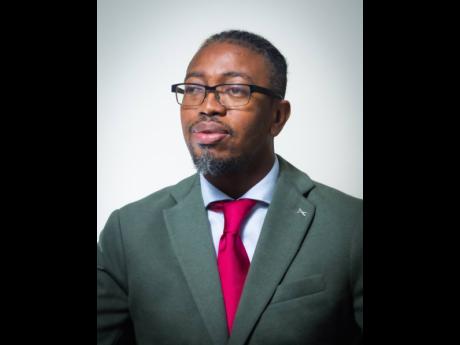Advocates for Patois in schools disappointed
After years of the Jamaican Language Unit (JLU) lobbying the Government to make Jamaican Creole an official language and a subject taught in schools, the Ecumenical Education Committee (EEC) is still no closer to achieving its objective.
The EEC has expressed concern that the Jamaica Education Transformation Commission’s (JETC) 2021 report did not address this issue. Members of the EEC expressed their concern at a forum, titled ‘The Future of Denominational and Trust Education in Jamaica’, last Thursday at St Michael’s College in St Andrew.
The JETC report, which did a comprehensive review of the education sector, was compiled by Professor Orlando Patterson and presented in January.
Among those most vocal about the issue was Grace Baston, principal of Campion College and a member of the EEC. She complained that the report did not consider what she deemed a major issue surrounding Jamaican Creole/Patois.
“We continue to ignore the profoundly alienating and disenfranchising effect of not recognising that most of our children from poorer homes have a first language which is not Standard English, and the failure to take this reality seriously to draw on the extensive research done by our scholars in linguistics at the UWI, and to have teachers trained in the ability to engage students in their first language and then, through that language, introduce them to Standard English, is an act of injustice,” Baston lamented.
“Mastering of the English is not solely necessary for them passing Primary Exit Profile (PEP) or passing Caribbean Secondary Education Certificate (CSEC) [subjects] but, in fact, for all their exams; for the very subjects that the Patterson commission wants to say how we should be moving; the heart of STEM culture and, even more importantly, the recognition of the mother tongue of our children; this major index of their identity is essential for their growth in self-love, in self-respect [and] in self-appreciation,” she continued.
But Dr Adrian Stokes, chairman of the Education Transformation Oversight Committee (ETOC), said the implementation has to be done carefully. “We have to be very careful about implementation. The truth is, and anyone who has been in business school or any kind of academic training or research [knows this], is that implantation is very very difficult, it’s very very hard. In fact, most implementation projects will eventually fail, and the reason why the prognosis isn’t good for many of these projects is because we are in search of perfection. We usually tend to let the perfect be the enemy of the good,” he said.
Joseph Farquharson, senior lecturer in linguistics and coordinator of the JLU at The University of the West Indies (UWI), Mona, is elated that the EEC – a group which includes leading educators and church leaders from the Corporate Area – have called out the Jamaica Education Transformation Commission’s 2021 report for not focusing on Jamaican Creole.
“The omission of language issues from the report of the commission is regrettable, given that language is the primary tool of education, regardless of subject area. Language is the chief vehicle used for passing on information, which means that the language of instruction is critical to the process,” Farquharson told The Gleaner.
“If we are to meet the development targets set out in Vision 2030, we have to start thinking like developed countries. Developed nations, no matter how small they are, introduce literacy in the mother language and then move on to other languages. That way, they prepare confident, well-adjusted, and productive citizens. National development must be based on science, not feelings, and the science has been pointing confidently for several decades now in the direction of bilingual education,” he added.
Dr Kadian Walters, a linguistics lecturer at UWI, Mona, who consistently bats for recognition to be given to Jamaican Creole as a formal language at the constitutional level, is also elated that members of the EEC have reiterated the need for Jamaican Creole to be introduced at the early-childhood level.
“It is important for children to gain an appreciation for their first language, as this forms a huge part of their identity. Research has shown that there are great benefits to be realised from using the students’ mother tongue as the language of instruction,” Walters told The Gleaner on Friday.
She said this would build the children’s self-confidence, since they won’t be ‘corrected’ for speaking ‘badly’.
“This constant corrective stance by some teachers serves as a psychological barrier for learning. Secondly, the student is able to distinguish between English and Jamaican, developing an understanding that they are two different languages,” Walters said.
She added: “It is important for children to gain an appreciation for their first language, as this forms a huge part of their identity. Research has shown that there are great benefits to be realised from using the students’ mother tongue as the language of instruction.”
Walters believes many youth have developed linguistic insecurity as a result of not being formally taught Jamaican Creole. With mother tongue instruction, she is convinced that there will be a lower dropout rate, as students feel that they are in a safer environment and would enjoy learning.
“The student is able to distinguish between English and Jamaican, developing an understanding that they are two different languages. This promotes critical-thinking skills and positions them to become multilingual. Finally, the use of the mother tongue as the medium of instruction will improve their overall academic performance,” she said.
These and other benefits were identified in the JLU’s Bilingual Education Pilot Project held between 2004 and 2008, in which teachers taught students in both English and Jamaican Creole from grades one to four at the primary level. One of the major successes was that the boys’ performance greatly improved.
Stokes noted that “one of the clear themes coming out of today’s session is that the report is not a perfect report, but there are some good recommendations in it. Another theme is, broader consultation is needed with all the key stakeholders, including the Church and the trust schools. That is very very clear from what we are hearing from the stakeholders”.



